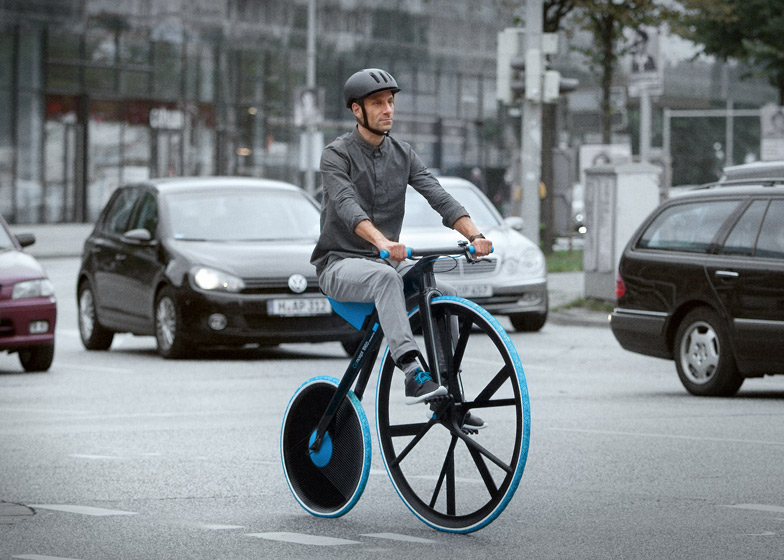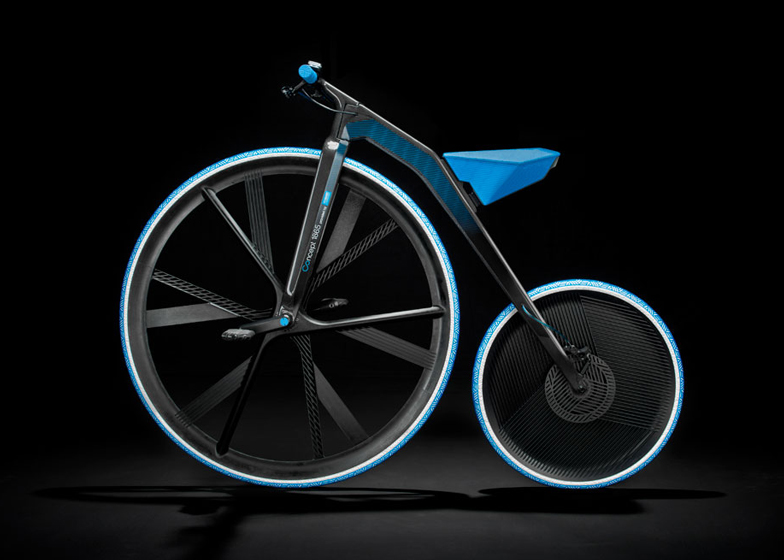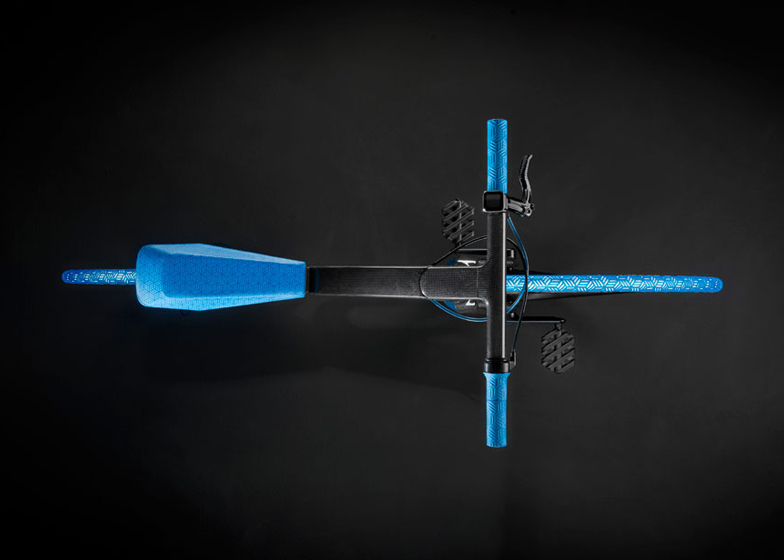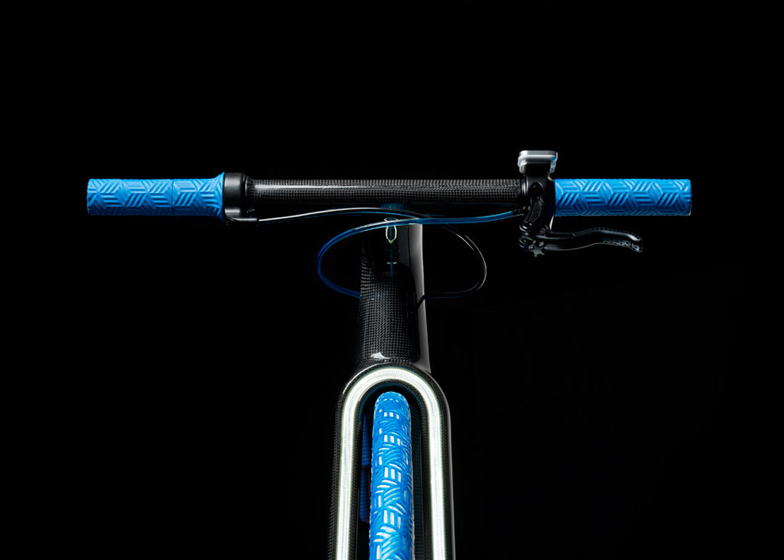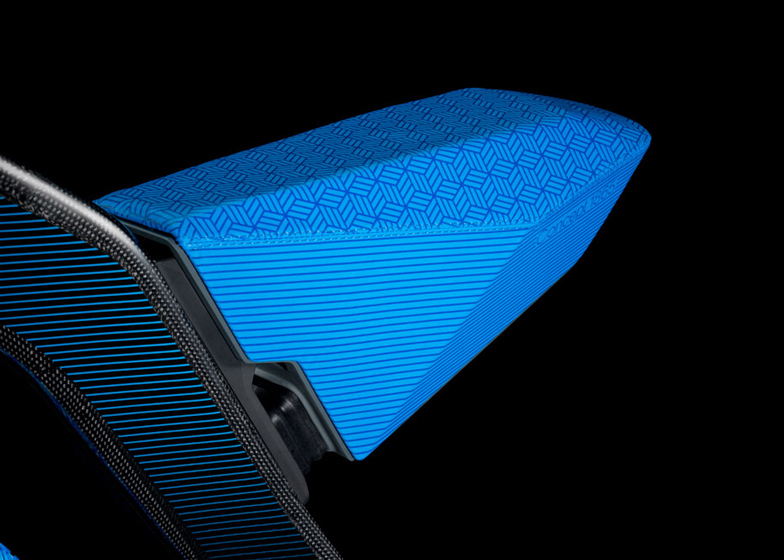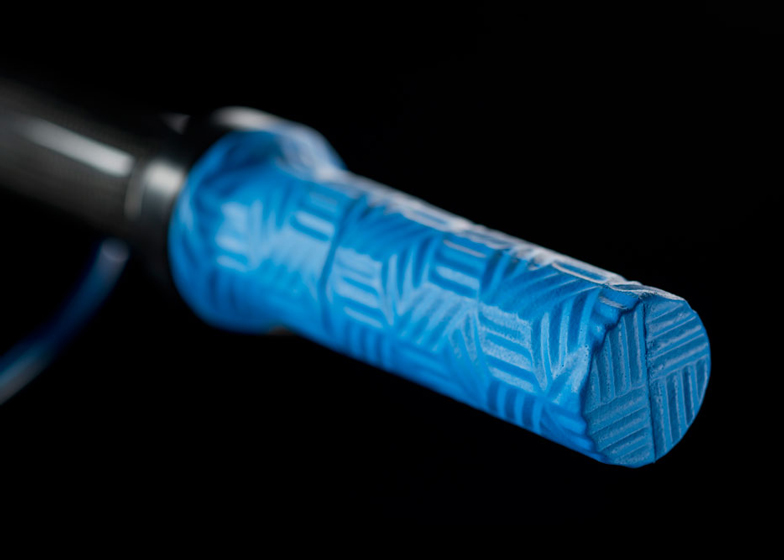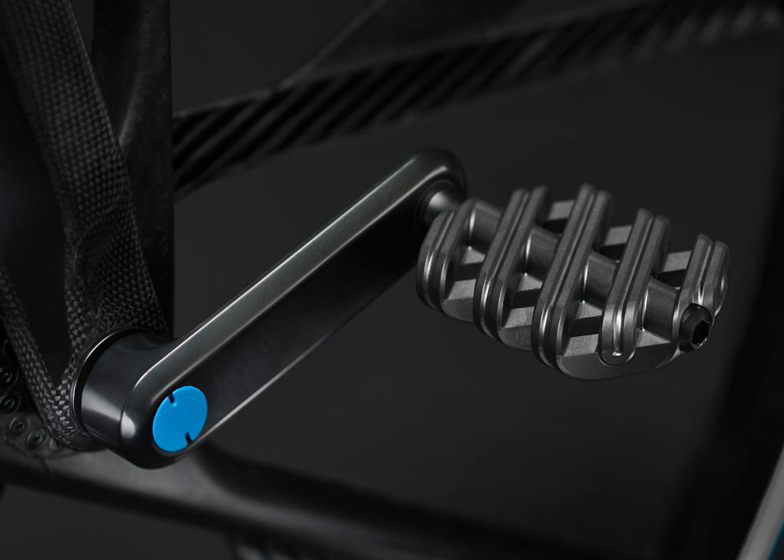German design studio Ding3000 has created a high-tech version of the first pedalled bicycle, introducing electric power and plastics to the 148-year-old invention (+ slideshow).
Ding3000 collaborated with chemical company BASF to create the Concept 1865 prototype bike, combining various plastics into a contemporary interpretation of an early bicycle.
BASF was founded in 1865, the year pedals were added to German inventor Karl Drais' wooden Dandy Horse velocipede bicycle, so this provided the starting point for the new design.
Pedals attach directly to the centre of the front wheel, which is much larger than the supporting back wheel.
The electric motor is concealed beneath a blue disk on the back wheel, designed to protect it from water, dirt and stone chips.
An angular seat protrudes from the long part of the frame, which connects the handlebars to the rear wheel.
The battery is located in the seat, which can be detached and carried away with a handle so no one can ride off on the bike when its left unattended.
The same graphic pattern used over the seat padding is found on the tyre treads and handlebar grips.
Other details include pedals without bearings and LEDs integrated into the sections of frame located either side of both wheels.
Here's some more text from the designers:
Concept 1865
Ding3000 designs an E-Velocipede made of high-performance plastics.
Conspicuous with its wheels of different sizes, the velocipede was the first pedal-powered cycle in history. Ding3000 and the chemical company BASF have now rebuilt the 19th-century bike as a modern e-bike. But why?
With the Concept 1865, we are taking a trip back to the year 1865, when BASF was founded. This was also the point in time when Karl Drais' wooden Dandy Horse was given its first pedals, which launched the bicycle on the road to global success. As a tribute to this era of enthusiasm for technology and invention, Ding3000 and BASF have embarked on an unparalleled thought experiment and asked: How would the first pedal cycle have looked if the pioneers of the bike had had today’s advanced materials to work with?
In cooperation with BASF, Ding3000 has developed the E-Velocipede Concept 1865. It is a ready-to-ride prototype with an electric drive and 24 polymer applications, some of which are highly innovative like the bearingless all-plastic pedals made of Ultrason or the light and puncture-proof tires made of Infinergy.
By implementing this design study Ding3000 obviously does not intend to reinvent the bicycle, let alone the wheel. Under the slogan "Rethinking Materials", the unusual e-bike is in fact an invitation to customers to join the company in developing new applications and product ideas utilising advanced plastics. It is an invitation to question the status quo and create something new - just as the pioneers of cycling did in their time.

